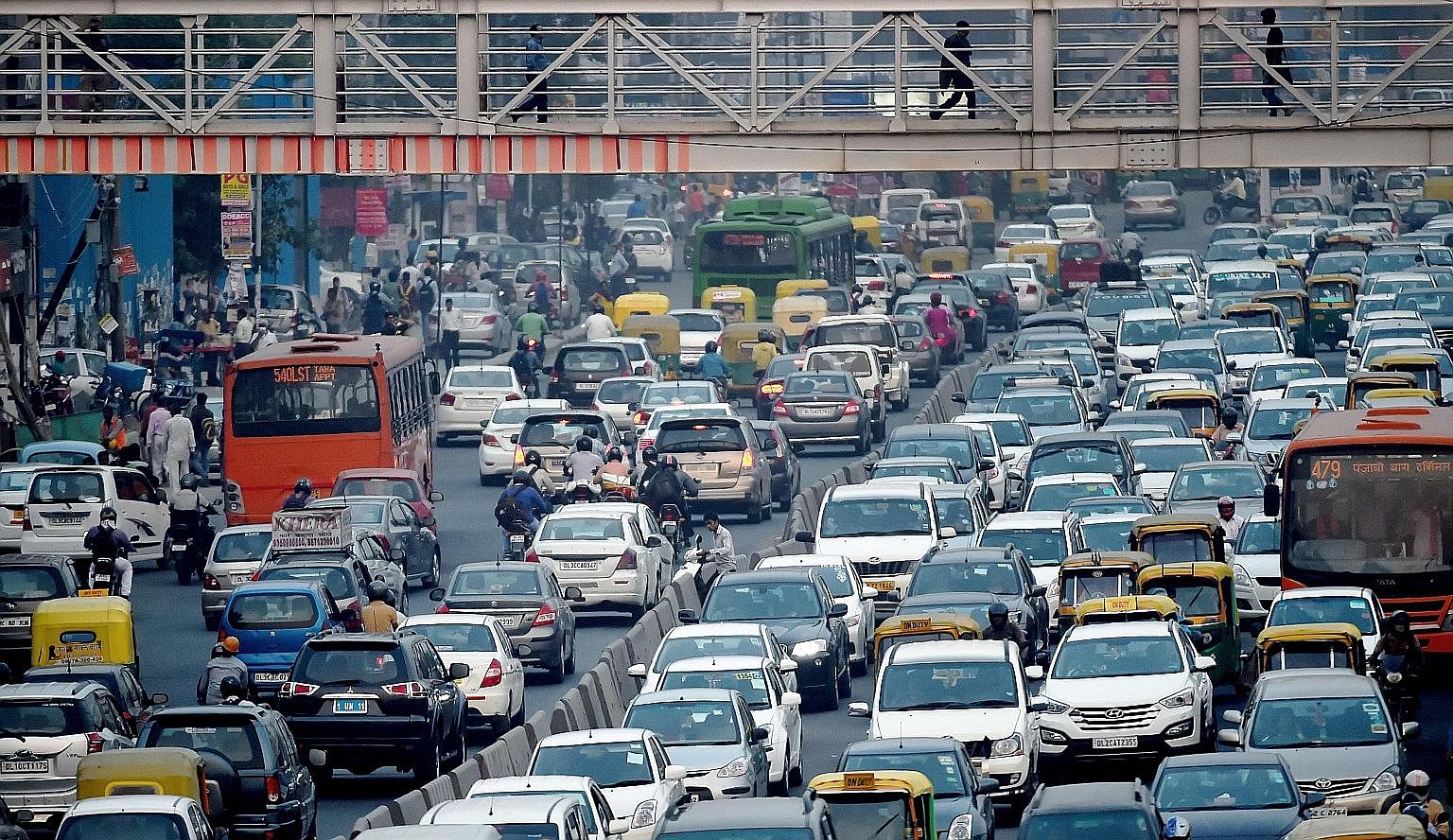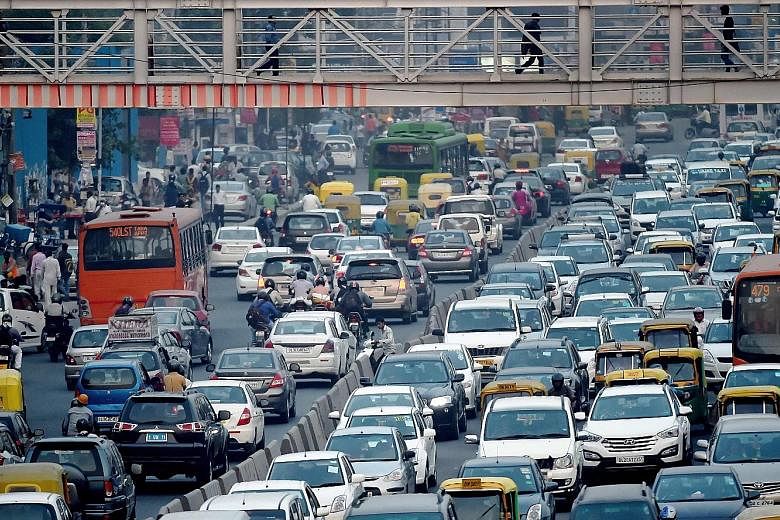Last week, Indian Prime Minister Narendra Modi stood up in front of the US Congress and listed plans to build 100 new "smart cities" as one of his top priorities for India.
Mr Modi is far from alone. Few buzzwords raise as much excitement among leaders in the emerging world, who hope to turn their traffic-clogged megacities into pristine recreations of Singapore or Barcelona.
Unfortunately, egged on by swarms of technology companies and management consultants, these visions of technological utopia face a real risk of turning into expensive delusions.
LURE OF CITY LIFE
India announced the names of a dozen more smart cities last month, bringing to 33 the number of urban areas that will now spend a reported US$12 billion (S$16.3 billion) installing everything from traffic-management technologies to smart electricity grids.
More such cities are expected to be identified later this year.
Other countries are equally keen.

Chinese municipalities from Nanjing to Yinchuan have re-christened themselves as smart, and are spending heavily on Internet and energy networks.
Last month, Sri Lanka signed a deal with Siemens, the German technology group, to help turn the capital Colombo into a smart "megapolis".
The idea of smart cities looks especially attractive to politicians in poorer Asian and African nations, as they try to tame urban areas dogged by weak governance, corruption and poor public services.
And in countries like India, the current smart cities PR blitz has proven helpful as a means of both focusing political energy on urbanisation, and ending a damaging rural bias dating back to national founder Mohandas Gandhi.
Leaders across emerging Asia now know they will have to cope with massive future migration to cities.
In India, an estimated 250 million will move away from rural villages over the two decades to 2030.
The share of gross domestic product generated by cities in countries like India is expected to rise to more than 70 per cent by 2020, according to Barclays.
These cities - where people and firms collocate, encouraging the spread of ideas - will be the wealth creation engines of the Asian century.
Poverty in China, for instance, is now almost entirely a rural phenomenon.
Less than 2 per cent of city dwellers live below the minimum income line, adjusted for purchasing power parity, according to the China Household Income Project.
Nations like India, whose cities are beset by slums, yearn for a similarly prosperous urban future. But getting there will require major governance and policy changes, as any visitor to Bangalore or New Delhi will quickly realise.
These are places where traffic crawls, electricity supplies are patchy and drinkable water a pipe dream, and that is before all these new people arrive. Such areas badly need well-planned urban expansions.
Yet, it is far from clear that smart cities - with their visions of super-fast broadband access and streets criss-crossed by neat cycle paths - are the best way to answer this challenge.
MISPLACED PRIORITIES
The problem begins with the term itself, which has become an unhelpful catch-all.
It is perfectly sensible for advanced cities like Singapore to spend heavily on sensors monitoring everything from flood levels to parking spaces.
In cities like Chennai or Jakarta, with more basic requirements for sanitation or transport, such expenditure often make less sense.
This is partly because plans for smart cities in poorer countries tend to over-focus on glass and chrome buildings and gee-whiz technology, while saying little about the people who already live there.
They also rarely seem to understand how places like Singapore became wealthy in the first place, long before the advent of digital technologies, largely by focusing on basic services and infrastructure.
At a deeper level, excitement about smart cities tends to rest on the misapprehension that digitising something makes it smart. Technology can play a role in making cities more liveable, but it is a means to that end, not an end in itself.
It is as if Medellin went from being one of the crime capitals of the world to Colombia's fastest growing city by installing sensors, rather than grappling with the difficult business of law and order or providing better urban transport.
STAYING REALISTIC
The upshot is that countries like India have to be more realistic about what smart cities can deliver.
Meanwhile, technology companies like Cisco and IBM, alongside exemplar nations like Singapore, must be a little more modest in their claims that the circumstances of rich urban areas can be easily recreated in developing economies.
Instead, all involved should emphasise simpler urban renewal projects, such as renovating existing "brownfield" developments or making it much easier to develop new neighbourhoods with easy land acquisitions rules.
Such plans may well involve rolling out high-speed broadband, but they are more likely to focus on improved waste collection, better air and water quality, and affordable housing.
Working on basic urban planning and clean political governance is just as important, albeit not as sexy as installing smart grid technologies.
India, in particular, has long failed to help its cities develop sensible plans for expansion, or to combat corruption.
As a result, most urban areas suffer higgledy-piggledy growth and are riven by graft - problems that technology alone cannot now fix.
Technology has a role to play in enabling Asia's urbanisation, but it is unlikely to provide the first step or the final answer.
Smart cities too often offer a false hope, that the hard work of making cities function can be avoided. You need to have passable public transport in the first place before talking about free Wi-Fi in buses.
There is no shame in saying that being a less dumb city is the first and most important step to becoming smart.
•Mr James Crabtree is a visiting senior research fellow at the Lee Kuan Yew School of Public Policy, National University of Singapore. Dr Reuben Abraham is chief executive at the IDFC Institute, a Mumbai-based think-tank focused on political economy issues.

